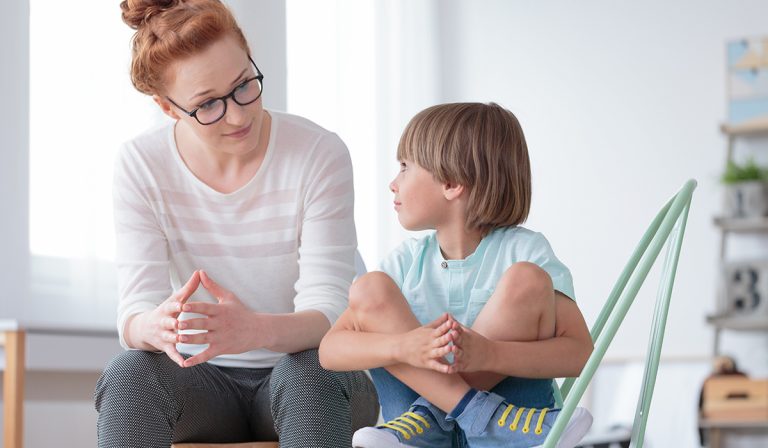
Preparing children or young people for the death of a loved one is possibly the hardest thing anyone will do. You will most likely be managing your own shock and distress, making these necessary conversations an even more daunting prospect. Although we can offer advice about how you might talk about an expected death, every family and their situation is different. You know your children best, so it is important to trust your instincts as well as take advice. Allow yourself time to process your own feelings and to prepare yourself as much as is possible; practise how you will tell them and think about the kind of questions they may have. It is advisable to have someone with you so you can share the talking if one of you becomes overwhelmed. When possible, it is helpful for the ill person to be present so children see an open conversation and everyone knows what has been said.
An initial conversation with children:
After this initial conversation children will begin to process what is happening. Sometimes their focus will be on what it means for them and at others their concerns will switch to the family and their loved one. Be aware that children may be particularly alert to adult conversations and may overhear things that they do not fully understand, leading them to fill in the gaps with their own imagination. Regularly checking in with your child about what they think is going on and how they are feeling will let them know that you are OK to talk about it. Often children are reluctant to mention ‘it’ thinking they will upset or remind people. Now is an important time for teachers and other care givers to be made aware of what is happening and what your child has been told. Children should know who you have told and it may be appropriate to ask teenagers who they would like to know at their school.
Some things to let them know as you continue the conversation:
As you navigate through the immense challenges of supporting your children it can become increasingly relevant to keep age and development in mind. Younger children respond well to being given jobs to help such as getting things or tidying. Where appropriate, older children may benefit from being a part of some discussions with health professionals, helping them to feel less shut out. If your child’s main carer or home will change, they need to know you are thinking about this, even if you are not exactly sure what will happen. Whatever their age, never assume they know who will look after them and where they will live. Most families have their own belief systems about what happens to us all after we die but may not have discussed this before. This may be the time to think about what you want communicated to your child so that there is consistency. In our experience phrases such as ‘gone to sleep’ and ‘gone to a better place’ are confusing for children, often leading to feelings of abandonment and sleep problems.
Naturally children mature differently, but the following is a general guide:
The Grief Encounter helpline, grieftalk can be contacted from 9am – 9pm Monday to Friday. The grieftalk helpline number is 0808 802 0111, or you can chat online or even email us now, we are here to listen.